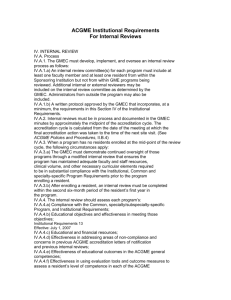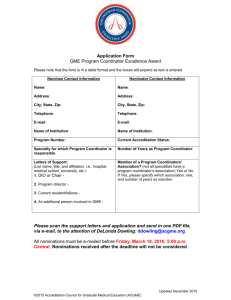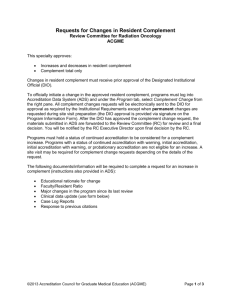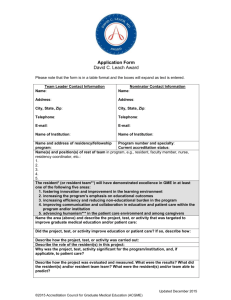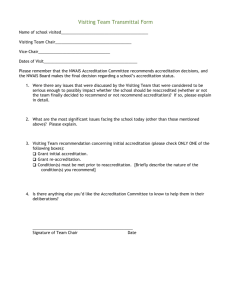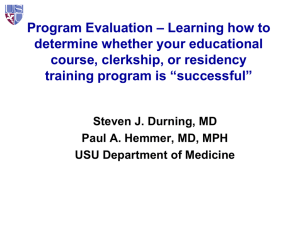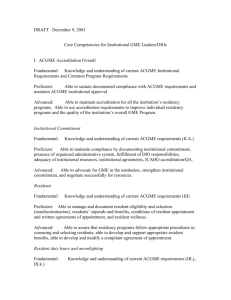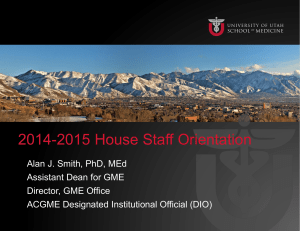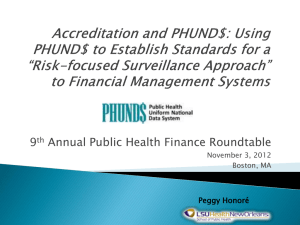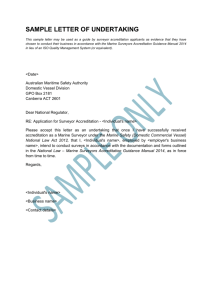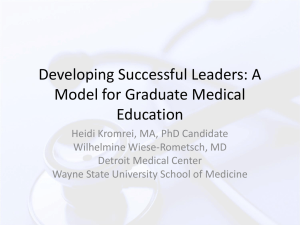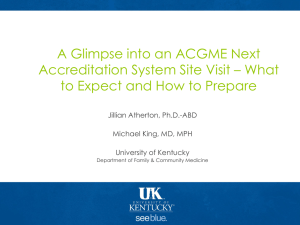Attachment Policy-Special Review
advertisement
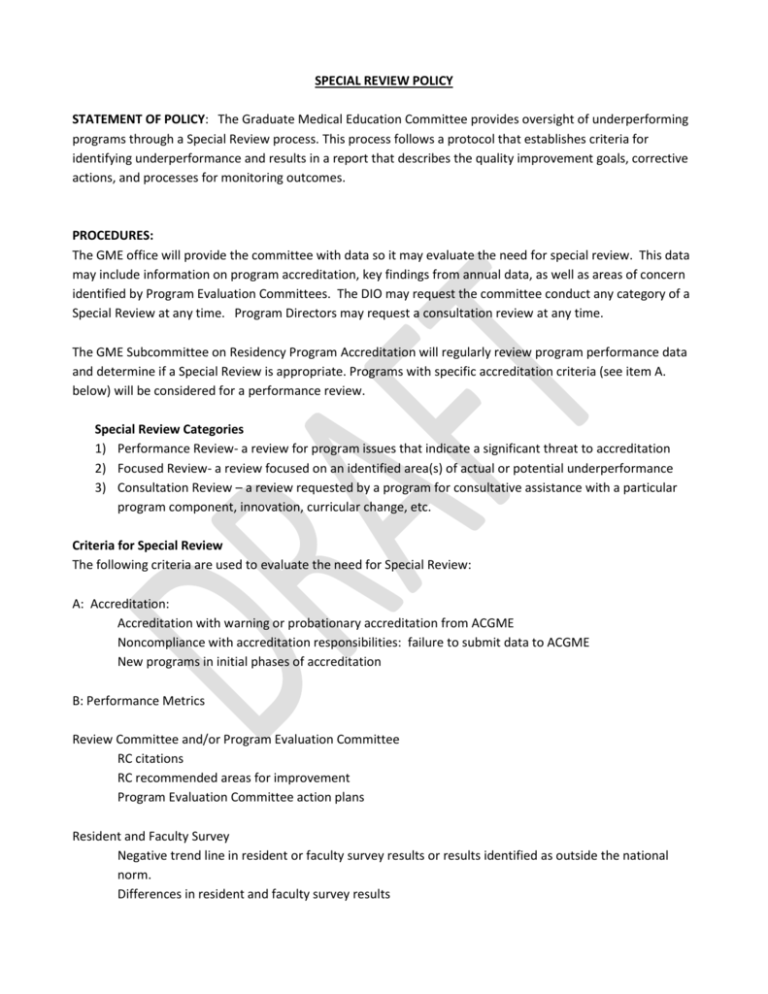
SPECIAL REVIEW POLICY STATEMENT OF POLICY: The Graduate Medical Education Committee provides oversight of underperforming programs through a Special Review process. This process follows a protocol that establishes criteria for identifying underperformance and results in a report that describes the quality improvement goals, corrective actions, and processes for monitoring outcomes. PROCEDURES: The GME office will provide the committee with data so it may evaluate the need for special review. This data may include information on program accreditation, key findings from annual data, as well as areas of concern identified by Program Evaluation Committees. The DIO may request the committee conduct any category of a Special Review at any time. Program Directors may request a consultation review at any time. The GME Subcommittee on Residency Program Accreditation will regularly review program performance data and determine if a Special Review is appropriate. Programs with specific accreditation criteria (see item A. below) will be considered for a performance review. Special Review Categories 1) Performance Review- a review for program issues that indicate a significant threat to accreditation 2) Focused Review- a review focused on an identified area(s) of actual or potential underperformance 3) Consultation Review – a review requested by a program for consultative assistance with a particular program component, innovation, curricular change, etc. Criteria for Special Review The following criteria are used to evaluate the need for Special Review: A: Accreditation: Accreditation with warning or probationary accreditation from ACGME Noncompliance with accreditation responsibilities: failure to submit data to ACGME New programs in initial phases of accreditation B: Performance Metrics Review Committee and/or Program Evaluation Committee RC citations RC recommended areas for improvement Program Evaluation Committee action plans Resident and Faculty Survey Negative trend line in resident or faculty survey results or results identified as outside the national norm. Differences in resident and faculty survey results Academics Board pass rate trends Resident scholarly activity Personnel Resident attrition Faculty turnover Program Director/Chair turnover Education Case log and/or procedure numbers/variability Educational requirement achievement/variability Resident remediation trends Faculty scholarly activity trends Faculty development CLER Resident injuries (e.g., sharps) Duty hours non-compliance Quality improvement involvement Resident supervision issues Administrative Resident compliance with administrative tasks (e.g., medical records completion on time, licensure application process on time, certifications up to date) Faculty compliance with administrative tasks (e.g., resident evaluations on time) Failure to submit data/reports to GMEC in a timely manner C: Consultation (programs may request consultation when) Meeting core measures and seeking to innovate on detail requirements Seeking to expand complement or affiliated training sites Revising educational program/curriculum Oversight: The GME Subcommittee on Residency Program Accreditation will conduct initial oversight of Special Reviews. The Committee Chair will appoint a faculty lead for a Special Review team. The team will consist of: one Accreditation Subcommittee faculty member one residency faculty member from within the GME system a residency administrator Additional members may be appointed to teams on an ad hoc basis and may include residents, additional faculty, or GME/PH/USCSOM administration. The committee will review reports and monitor progress toward outcome goals. Components of the Special Review report: A Special Review team will complete a report upon completion of a Special Review and present it to the Subcommittee. This report will include the following information: Rationale for the Special Review with specific notation of the ACGME or Program Requirements being assessed Information used to initiate the review Information considered during the review Quality improvement goal(s) for the program to address and metric(s) and/or threshold(s) necessary to meet the goal(s). Necessary corrective action(s) to achieve GME expectations and/or ACGME requirements An implementation plan defining what information will be reviewed, how it will be reviewed, and how often. The expectations for communication from the program to the subcommittee should be outlined. Additional information may be included in the report at the discretion of the review team, subcommittee, or DIO. _10/14/2014 Date of Initial GMEC Approval Signature on File Katherine G. Stephens, PhD, MBA, FACHE System Vice President, Medical Education & Research and DIO Signature on File James I. Raymond, MD Chief Medical and Academic Officer 10/14/2014 Date of Last GMEC Review
